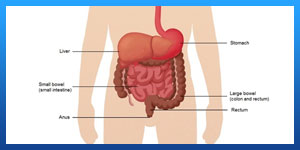Colorectal surgery

How long does colorectal surgery take?
Is colorectal surgery painful?
Is a colon resection a major surgery?
Why do you need colorectal surgery?
Colorectal surgery
Colorectal surgery is a field in medicine dealing with disorders of the rectum, anus, and colon. The field is also known as proctology, but this term is now used infrequently within medicine and is most often employed to identify practices relating to the anus and rectum in particular. The word proctology is derived from the Greek words πρωκτός proktos, meaning “anus” or “hindparts”, and -λογία -logia, meaning “science” or “study”.
Physicians specializing in this field of medicine are called colorectal surgeons or proctologists. In the United States, to become colorectal surgeons, surgical doctors have to complete a general surgery residency as well as a colorectal surgery fellowship, upon which they are eligible to be certified in their field of expertise by the American Board of Colon and Rectal Surgery or the American Osteopathic Board of Proctology. In other countries, certification to practice proctology is given to surgeons at the end of a 2–3 year subspecialty residency by the country’s board of surgery.
Read more about: Metastatic myxofibrosarcoma treatment with the best Iranian oncologist surgeon
Read more about: Anal fissure surgery
Read more about: Anal cancer treatment
Read more about: Colorectal Cancer Pathophysiology
Read more about: Colorectal Cancer Recovery
 Scope of the specialty
Scope of the specialty
Colorectal surgical disorders include:
- varicosities or swelling, and inflammation of veins in the rectum and anus (Hemorrhoids)
- unnatural cracks or tears in the anus (Anal fissures)
- abnormal connections or passageways between the rectum or other anorectal area to the skin surface (Fistulas)
- severe constipation conditions
- fecal incontinence
- protrusion of the walls of the rectum through the anus (Rectal prolapse)
- birth defects such as the imperforate anus
- treatment of severe colic disorders, such as Crohn’s disease
- cancer of the colon and rectum (Colorectal cancer)
- repositioning of the rectal area if fallen out.
- anal cancer (rare)
- any injuries to the anus
- removal of objects inserted into anus
Surgical treatment and diagnostic procedures
Surgical forms of treatment for these conditions include: colectomy, ileo/colostomy, polypectomy, strictureplasty, hemorrhoidectomy (in severe cases of hemorrhoids), anoplasty, and more depending on the condition the patient has. Diagnostic procedures, such as a colonoscopy, are very important in colorectal surgery, as they can tell the physician what type of diagnosis should be given and what procedure should be done to correct the condition. Other diagnostic procedures used by colorectal surgeons include: proctoscopy, defecating proctography, sigmoidoscopy. In recent times, the laparoscopic method of surgery has seen a surge of popularity, due to its lower risks, decreased recovery time, and smaller, more precise incisions achieved by using laparoscopic instruments.
Read more about: Does colorectal cancer occur in old people?
Read more about: colorectal cancer risk factors
Read more about: colorectal cancer staging
Mechanical bowel preparation
Mechanical bowel preparation (MBP) is a procedure lacking evidence in the literature, wherein fecal matter is expelled from the bowel lumen prior to surgery, most commonly by using sodium phosphate.
How long does colorectal surgery take?
Colectomy usually takes between 1 and 4 hours.
Is colorectal surgery painful?
When you wake up after surgery, you will have some pain and will need pain medicines for a few days. For the first couple of days, you may not be able to eat or you may be allowed limited liquids, as the colon needs some time to recover. Most people are able to eat solid food in a few days. You should feel better after 1 to 2 weeks and will probably be back to normal in 2 to 4 weeks. Your bowel movements may not be regular for several weeks. Also, you may have some blood in your stool. This care sheet gives you a general idea about how long it will take for you to recover.
Read more about: How you can Prevented from Colorectal Cancer?
Read more about: Colorectal Cancer treatment
Read more about: colorectal cancer treatments
Is a colon resection a major surgery?
Colon resection (colectomy) is the surgical removal of part or the entire colon. Colectomy is performed under general anesthesia and may require hospitalization for up to a week or more. Colectomy is a major surgery and may take up to four hours for completion. Right after the surgery, you'll be able to drink fluids. You may be able to eat solid foods the following day. Your surgeon might recommend eating a low-fiber diet for about a month. Recovery from a laparoscopic surgery is faster than with an open resection.
Why do you need colorectal surgery?
Often patients with cancer in the colon or rectum will need surgery. Usually this will be a bowel resection, which involves removing the affected part containing the cancer and then rejoining the bowel. In many cases, bowel cancer can be cured in this way with no need for further treatment.
Read more about: Colorectal hospitals in Iran
Read more about: Colorectal surgery in Iran


6 Comments
What is the prevalence of colorectal cancer?
It is the third leading cause of cancer deaths worldwide. Mortality among women over 75 years old is higher than colorectal cancer. Many people in the society are at risk of it because of the age and other factors.
Doctor I feel a red lump next to my anus.. When I sit, it doesn’t make any sense But when I sit on my knees , it swells.what is it?
Hi, it’s a kind of exterior and sudden hemorrhoids, avoid straining and sitting too much and stress.
What is the prevalence of colorectal cancer?
It is the third leading cause of cancer deaths worldwide. Mortality among women over 75 years of age is higher than colorectal cancer.
Many people in the community are at risk because of their age and other factors.